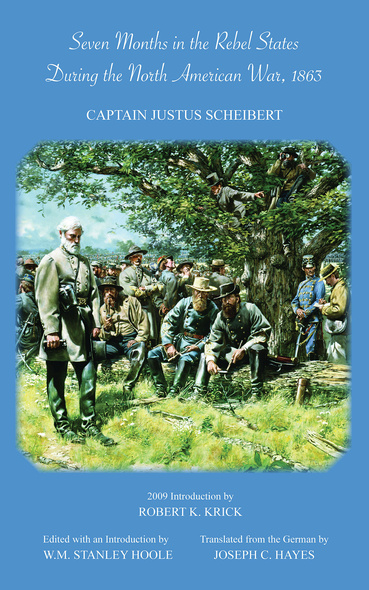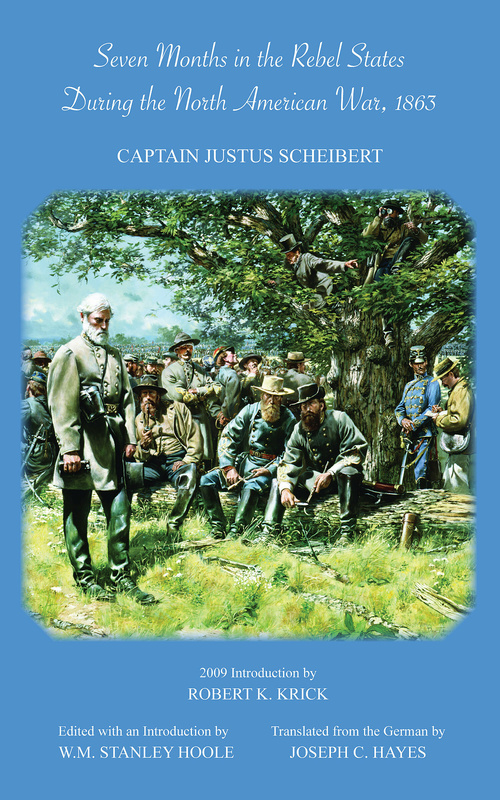Seven Months in the Rebel States During the North American War, 1863
By Justus Scheibert; Translated by Joseph C. Hayes; Introduction by Robert K. Krick and William Stanley Hoole; Edited by William Stanley Hoole, W. Stanley Hoole, and Robert K. Krick
SERIES:
Seeing the Elephant
University of Alabama Press
Captain Scheibert’s book was available only in German until W. S. Hoole edited the present version.
Captain Scheibert’s [book] was available only in German until W. S. Hoole edited the present version. A member of the Prussian army since 1849, and ‘well known as an authority on fortifications,’ Scheibert was sent to America ‘to study the effect of rifled cannon fire on earth, masonry, and iron, and the operation of armor on land and at sea.’ The captain preferred to observe the South rather than the North at war. ‘If there ever was a foreign Rebel,’ Mr. Hoole asserts, ‘he was one.’ Scheibert, impressed with the South’s ‘enormous energy’ and ‘amazed at the industry of a patriotic people,’ was cordially received by President Davis and Generals Lee, Jackson, Beauregard, and Stuart. The vivid impressions, observations, and characterizations of a Prussian captain are a significant commentary on the engagements at Chancellorsville, Brandy Station, and Gettysburg, on blockade running, and on the spirit of the people and their military genius.’—Journal of Southern History
‘This is an interesting story, giving a Prussian military officer’s view of the Civil War. The author wrote other accounts of that war during his lifetime, always praising the South. Those interested in how the war was viewed by European military observers and how it was reported to European readers will find much of interest in this reasonably priced book.’--The Journal of America’s Military Past
Justus Scheibert (1831–1903) was an army captain, sent by Prussia to America to observe the American Civil War in order to learn the lessons to be learned and return to Prussia to teach these lessons to the Prussian troops. His writings became a source of Prussian, and later German, military strategy through five subsequent wars.





